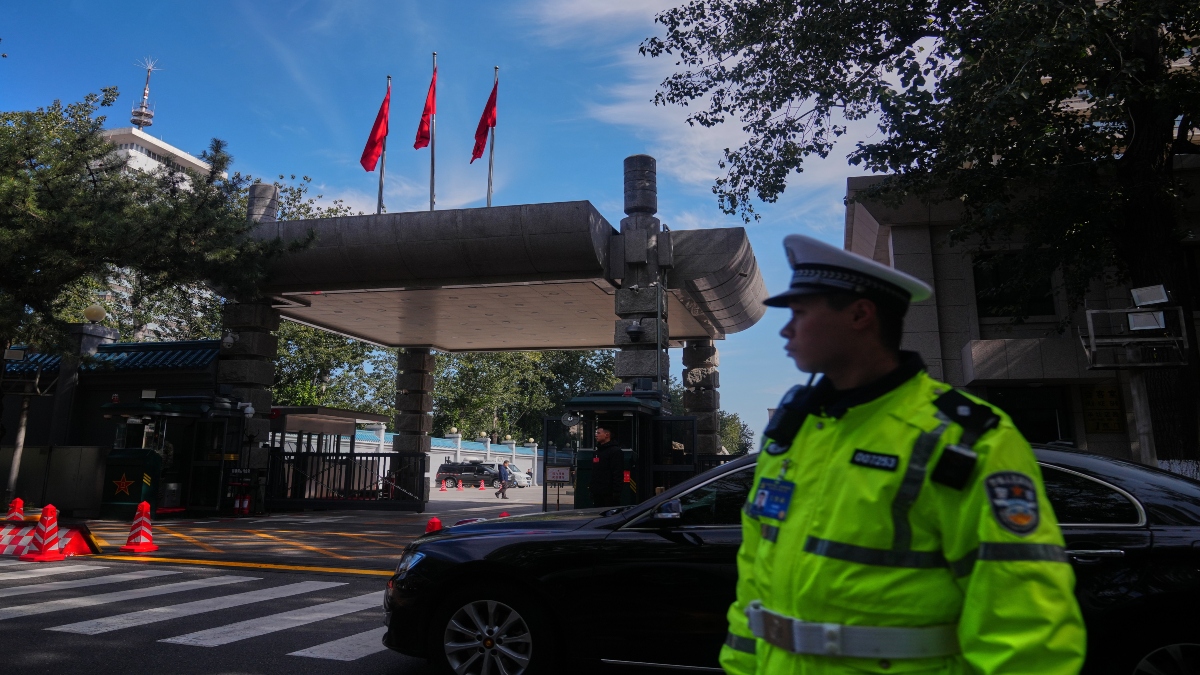A closely watched four-day meeting of China’s top Communist Party leaders concluded on Thursday with the biggest leadership reshuffle in almost 10 years — but without any sign of discussion about one key issue: who will take over after Xi Jinping.
According to a Reuters report, citing Xinhua, the Fourth Plenum of the CCP’s 20th Central Committee, held behind closed doors in Beijing, replaced 11 full members — the highest turnover since 2017 — amid an ongoing purge in the military’s top ranks.
The meeting also endorsed a new five-year economic development plan focused on achieving technological self-reliance as China’s rivalry with the United States deepens, added the report.
Power transition remains a ‘forbidden question’
The plenum once again highlighted Xi Jinping’s tightening grip on power. Leadership changes were carefully managed, and the latest military purge reinforced his control over both the party and the armed forces.
Yet, even amid the sweeping reshuffle within the Central Committee, there was no sign of a succession plan. The issue of who might one day replace Xi remains politically untouchable — a topic that analysts widely describe as a “forbidden question.”
As the Financial Times reported earlier, even quiet speculation about future leadership is considered politically dangerous, reflecting the extent to which any hint of transition could be seen as disloyalty.
This silence contrasts with the post-Deng Xiaoping era of predictable transitions.
For decades, CCP leaders adhered to unwritten norms — two five-year terms in office and retirement at 68 — intended to institutionalise power transfer and prevent another Mao-style cult of personality.
Impact Shorts
More ShortsXi, however, has systematically dismantled those constraints. Now 72, he has eliminated both age and term limits, clearing the way to rule indefinitely and removing mechanisms that once helped ensure political stability.
China’s political succession history highlights how far Xi has departed from precedent.
Mao Zedong ruled until his death at 82, after which Deng Xiaoping and later Jiang Zemin introduced internal rules designed to prevent lifetime tenures. The “seven up, eight down” convention — allowing promotion before 68 but requiring retirement beyond it — became an informal standard.
But in 2018, China’s legislature abolished the presidential two-term limit, a move clearing Xi’s path to lifelong rule. Since then, his dominance has extended across the party, the state, and the military.
Xi’s ascendancy and the military purge
The Fourth Plenum also reinforced Xi’s anti-corruption drive, which since 2012 has reshaped the CCP and the People’s Liberation Army (PLA).
According to Asia Society Policy Institute report, citing critics, the campaign — touted as a fight against graft — has also served as a political purge to eliminate rivals and enforce loyalty.
This week’s meeting marked a dramatic escalation. Eleven Central Committee members were replaced, including eight generals expelled from both the CCP and the military, some of whose investigations had not been publicly disclosed. Among them was He Weidong, the former second-ranked vice chair of the Central Military Commission (CMC) and once considered close to Xi. He’s the first sitting CMC member to be removed since the Cultural Revolution (1966–76), reported Reuters.
He’s fall followed a string of high-profile military ousters that have shrunk the once seven-member CMC by three since 2023.
“By purging these officers before the plenum altogether and all at once, Xi is sending a clear shot across the bow to the military high command and asserting his dominance,” Reuters quoted Jon Czin, a PLA expert at the Brookings Institution, as saying.
Replacing He is General Zhang Shengmin, 67, who was promoted to second-ranked vice chair of the CMC, according to Reuters, citing Xinhua.
Zhang currently heads the CMC Commission for Discipline Inspection — the PLA’s top anti-corruption body — and serves as a deputy secretary in the CCP’s Central Commission for Discipline Inspection, giving him an unusual dual role straddling the military and civilian branches of the party’s enforcement apparatus.
A career political commissar with roots in the former Second Artillery Force (now the Rocket Force), Zhang has long been viewed as one of Xi’s most trusted military allies. Analysts say his elevation signals Xi’s intent to keep the armed forces under close personal supervision, reported Reuters.
The cost of no successor
Xi’s sweeping control over both the political and military apparatus may appear to secure his position, but analysts warn of hidden risks.
Naming a successor could indeed weaken Xi — prompting senior cadres to redirect loyalty toward the next in line — yet refusing to name one raises the specter of a future power struggle should Xi suddenly become incapacitated.
According to a Financial Times report, this deliberate ambiguity may preserve Xi’s dominance in the short term, but it also creates long-term instability. By eliminating institutional safeguards and discouraging any discussion of succession, Xi has made China’s political future hinge entirely on his personal continuity, added the report.
For now, the Fourth Plenum has reaffirmed one message: Xi remains firmly in command — but the question of what happens after him remains as perilous, and as forbidden, as ever.
With inputs from agencies
)